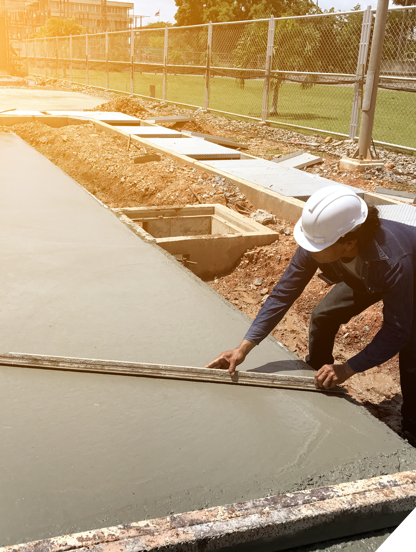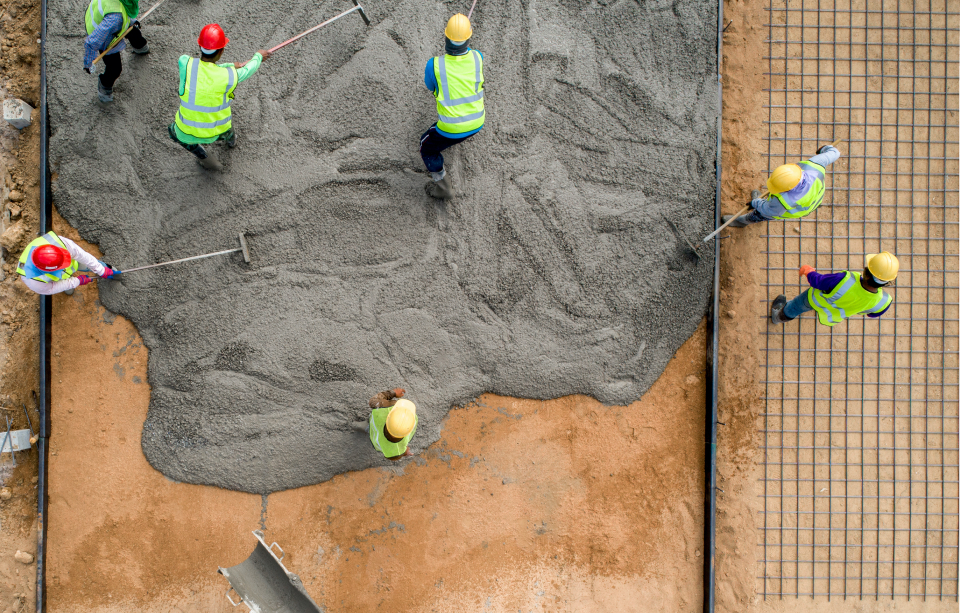There are three reasons why concrete has been one of the most popular building materials since Roman times, it’s in just about every building you see and it is literally the foundation of the communities we live and work in.
-
Versatility
Suitable for so many different applications, in endless shapes and sizes, in any climate and conditions
-
Low Maintenance
Concrete is the original “set it and forget it” construction material
-
Strength & Durability
Go ahead, name a common building material with the strength of concrete

Concrete vs Cement
While “cement” and “concrete” are often used interchangeably, cement is just one ingredient that goes into a concrete mix. The other ingredients in concrete include fine aggregate, like sand; coarse aggregate, like stone; water; and additive

How Much Concrete Do You Need?
The easy-to-use Concrete Calculator tells you the type and volume of concrete you need for your project, and how much it will cost.
Try the Concrete CalculatorConcrete Mix Design
Depending on the ingredients, their ratios (like the water-cement ratio), and the additives used, concrete mixtures can be formulated to meet different specifications and performance characteristics. In a home, the concrete used to anchor a fence post doesn’t need the compressive strength that’s required for a driveway.
Concrete Additives
Chemical or mineral additives can be added to the concrete mixture on-site. Additives, or admixtures, enhance different characteristics of the concrete including to make it rapid-set, higher strength and/or crack resistant, among other properties.

Which Concrete Mix To Use for Your Project
The Ontario Building Code (OBC) outlines minimum requirements for concrete strength for different applications. To help you find the right type of concrete for your project, check this chart of concrete applications and the minimum required concrete strength for each one. The strength of concrete is measured in MPa (megapascals), which is the metric equivalent of PSI (pounds per square inch)
15 MPa Concrete (R1-R2)
- Basement Walls
- Footings
25 MPa Concrete (F2)
- Basement Floors
- Underpinning
- Walkout Walls
- Fence Post Holes
32 MPa Concrete (C2)
- Hot Tub Pads
- Shed Pads
- Patios
- Poolside Decks
- Driveways & Curbs
- Sidewalks & Walkways
- Retaining Walls
- Steps
- Round Holes
- Circular Slabs & Tubes
.04 UFILL
- Backfill
- Structural Fill
Commercial & Industrial Concrete Projects
Mix On-Site will also help you choose the right concrete strength, according to OBC requirements, for all your commercial and industrial construction projects.
How Much Concrete Do You Need?
The easy-to-use Concrete Calculator tells you the type and volume of concrete you need for your project, and how much it will cost. Try the Concrete CalculatorWhy Choose Mix On-Site?
There’s one big reason to choose Mix-On-Site ready-mix concrete: to help your building project run smoothly.

Find Out How Mix On-Site Works
See how you can get the perfect mix of concrete and pay only for what you use.
Learn More About How It Works